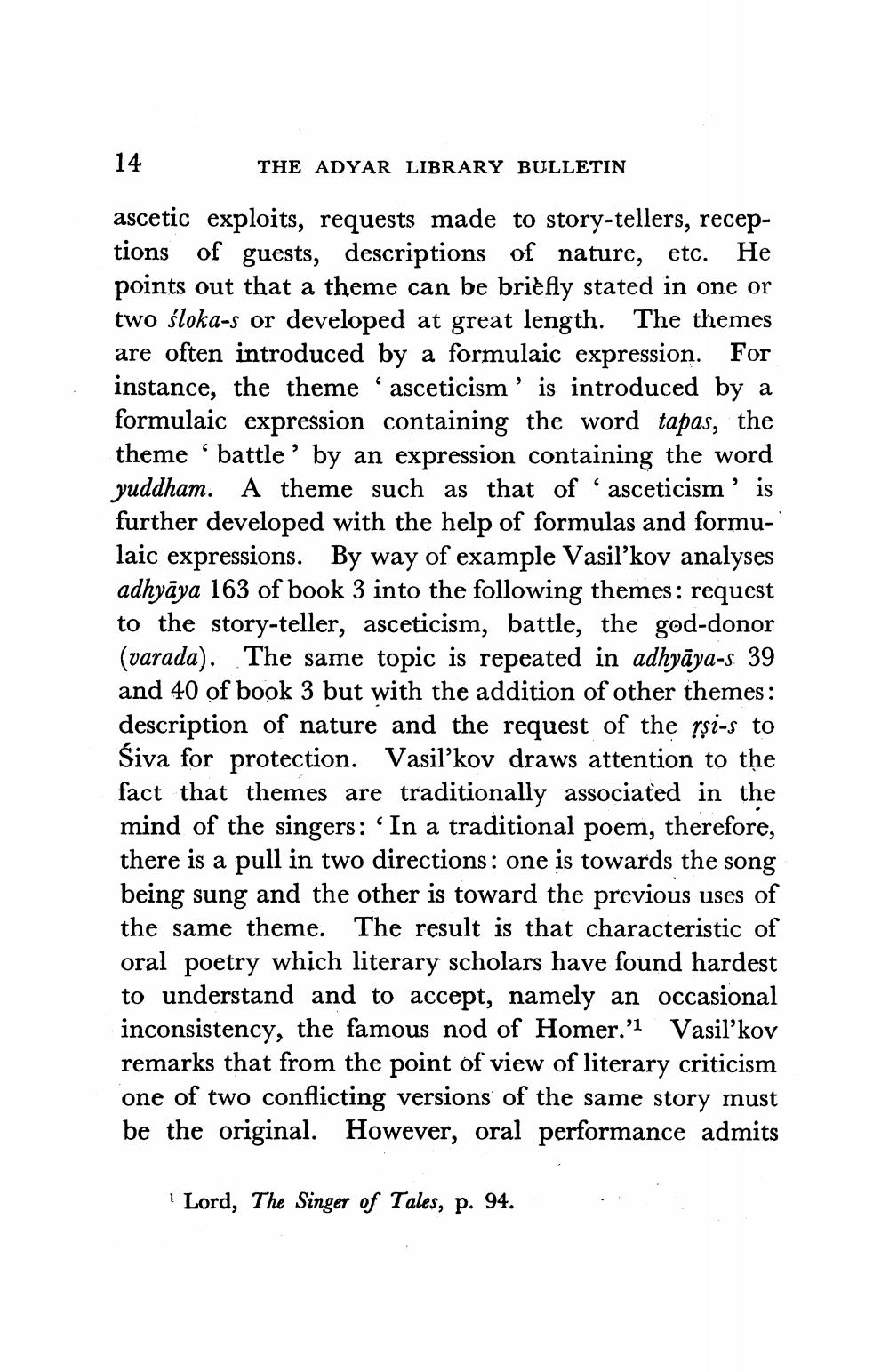________________
14
THE ADYAR LIBRARY BULLETIN
ascetic exploits, requests made to story-tellers, receptions of guests, descriptions of nature, etc. He points out that a theme can be briefly stated in one or two śloka-s or developed at great length. The themes are often introduced by a formulaic expression. For instance, the theme asceticism' is introduced by a formulaic expression containing the word tapas, the theme ' battle' by an expression containing the word yuddham. A theme such as that of asceticism' is further developed with the help of formulas and formulaic expressions. By way of example Vasil’kov analyses adhyāya 163 of book 3 into the following themes: request to the story-teller, asceticism, battle, the god-donor (varada). The same topic is repeated in adhyāya-s 39 and 40 of book 3 but with the addition of other themes: description of nature and the request of the rși-s to Śiva for protection. Vasil’kov draws attention to the fact that themes are traditionally associated in the mind of the singers: 'In a traditional poem, therefore, there is a pull in two directions: one is towards the song being sung and the other is toward the previous uses of the same theme. The result is that characteristic of oral poetry which literary scholars have found hardest to understand and to accept, namely an occasional inconsistency, the famous nod of Homer.'1 Vasil’kov remarks that from the point of view of literary criticism one of two conflicting versions of the same story must be the original. However, oral performance admits
Lord, The Singer of Tales, p. 94.




